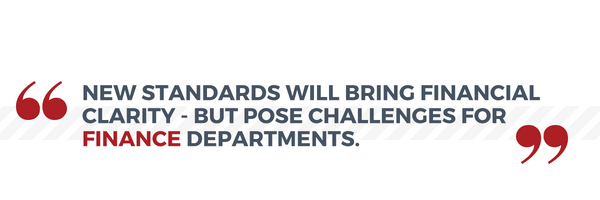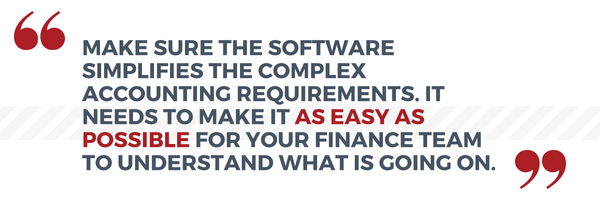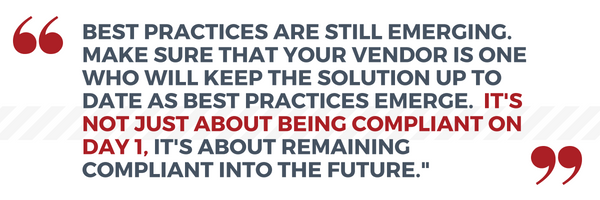Aptitude Software lease accounting expert, Alan Berkley, recently led a webinar on mitigating risks when implementing a lease accounting solution.
IFRS 16 / ASC 842 basics:
Public companies have until December 2018 (ASC 842) or Jan 2019 (IFRS 16) to comply with the new lease accounting standards. That’s about five months away (approximately 150 days!) If you haven’t begun a project in earnest, it’s time to start now. The standards will change how leases are recorded on the balance sheet and hopefully lead to improved financial transparency and better comparability for users of financial statements.
In order to achieve compliance, most finance teams will face data, systems, process and workflow challenges that will require time and thought to overcome.
Plan, plan and plan some more for your IFRS 16 / ASC 842 project
Planning is where the majority of the work will lay for most companies. Thorough planning is essential for a smooth project. On the webinar, Alan walks through the areas project teams will need to consider and things to think about including:
- Lease volume: Make sure to include all leased asset types as well as those where you are the lessor.
- System architecture: Identify all the systems which hold leases as well as other system feeds that may be required.
- Lease types: Understand your various lease structures (embedded, subleases, intercompany) and where leases may include non-lease items that need to be separated
- Accounting policy decisions: Think about applied exemption options, transition policies, modification methods, etc.
Choose a leasing solution that grows with you
Companies will need to think about their current needs such as requirements for multi-GAAP, multi-currency, transition options and scaling. The only way to choose the right solution is to be as informed as possible about your own needs.
But it’s not enough for a solution to meet the needs of today. Companies need to prepare for the future, including changing business models, future mergers and acquisitions, new markets and emerging technologies. It’s critical to select a vendor who is committed to building new solution capabilities and incorporating future best practices.
Time is ticking:
The time to act is now. Non-compliance is not an option. Failing to comply will disrupt the productivity of your finance teams and could lead to reputational damage. Luckily, there are a number of solutions on the market to assist you with lease accounting compliance. By identifying your requirements and selecting a vendor with expertise in regulatory change efforts and a future-proof solution, you can meet the compliance deadline.





